
Meghan Rosen is a senior writer who reports on the life sciences for Science News. She earned a Ph.D. in biochemistry and molecular biology with an emphasis in biotechnology from the University of California, Davis. Her dissertation work involved studying mutated proteins in liver and kidney cancer. She later graduated from the science communication program at UC Santa Cruz. Prior to joining Science News in 2022, she was a media relations manager at the Howard Hughes Medical Institute. Her work has appeared in Wired, Science, and The Washington Post, among other outlets. Once for McSweeney’s, she wrote about her kids’ habit of handing her trash, a story that still makes her (and them) laugh.

Trustworthy journalism comes at a price.
Scientists and journalists share a core belief in questioning, observing and verifying to reach the truth. Science News reports on crucial research and discovery across science disciplines. We need your financial support to make it happen – every contribution makes a difference.
All Stories by Meghan Rosen
-
 Tech
TechMachine triumphs in strategy game
For the first time, a computer has beat a professional human player in the strategy game Go.
-
 Tech
TechMachine trumps man in strategy game Go
For the first time, a computer has beat a professional human player in the strategy game Go.
-
 Health & Medicine
Health & MedicineRapid spread of Zika virus in the Americas raises alarm
After blazing through Brazil, a mosquito-borne virus called Zika, which may cause birth defects, is now poised to jump to the United States.
-
 Health & Medicine
Health & MedicineCDC issues travel guidelines for pregnant women
Pregnant women should consider postponing travel to much of Latin America and the Caribbean.
-
 Health & Medicine
Health & MedicineNew dietary guidelines emphasize big picture
Americans’ new guidelines for healthy eating focus on subtle shifts to dietary habits.
-
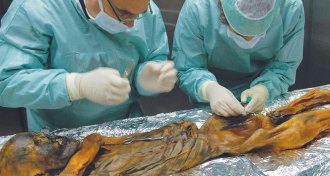 Genetics
GeneticsThe Iceman tells a new tale: Infection with ulcer-causing bacteria
Ötzi the Iceman was infected with a virulent strain of H. pylori. A new study is the first to piece together an ancient genome of these bacteria.
-
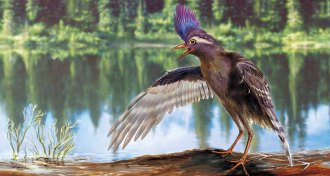 Paleontology
Paleontology12 amazing fossil finds of 2015
From an ancient sponge ancestor to the Carolina Butcher, scientists learned a lot about life on Earth this year.
-
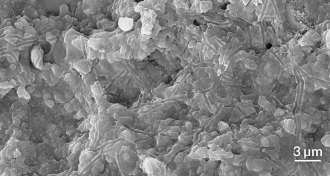 Paleontology
PaleontologyBubbles may have sheltered Earth’s early life
Bubbles formed on ancient shorelines offer scientists a new place to look for traces of early life.
-
 Health & Medicine
Health & MedicineYear in review: Not all bodies act their age
People grow old at different rates, but the underlying drivers of aging may be the same: molecular havoc wreaked inside of cells, scientists suggested in 2015.
-
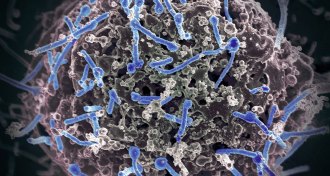 Health & Medicine
Health & MedicineYear in review: Ebola vaccines on the way
After more than a year of furiously developing and testing potential Ebola vaccines, two candidates have risen to the top and may soon be available for use.
-
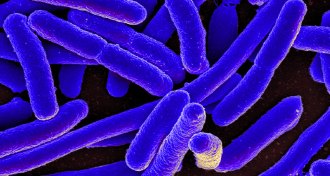 Life
LifeMicrobes show up on schedule after death
Microbes in the soil beneath dead bodies offer forensic clues for time and place of death.
-
 Animals
AnimalsPlayful pups conceived via in vitro fertilization for the first time
Scientists have solved the mystery of how to perform in vitro fertilization in dogs, which could help rid canines of heritable diseases.